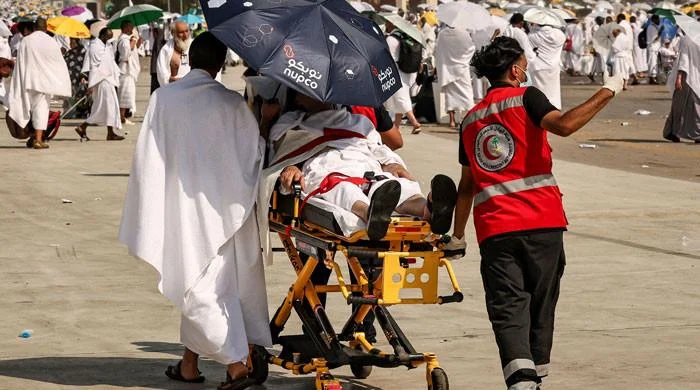Introduction
Hajj 2024 marked another significant year for the Islamic pilgrimage, not only for its spiritual importance but also for the monumental efforts in providing medical care to the millions of pilgrims. Ensuring the health and safety of the pilgrims is a top priority, and this year, more than 1.3 million medical services were provided, showcasing the remarkable scale and efficiency of the healthcare infrastructure in place.
The Scale of Medical Services Provided
The sheer volume of medical services offered during Hajj 2024 is astounding. Over 1.3 million medical services were rendered, encompassing a wide range of healthcare needs. This figure represents a substantial increase compared to previous years, highlighting the continuous improvement and expansion of medical facilities and services.
Types of Medical Services Offered
Medical services during Hajj are comprehensive and cater to various health needs. These include:
- Emergency Services:
- Immediate care for accidents, acute illnesses, and other urgent health issues.
- Routine Check-ups
- : Regular health assessments to monitor and maintain pilgrims' well-being.
- Specialized Care: Treatment for specific conditions like diabetes, hypertension, and respiratory issues.
Healthcare Facilities
To accommodate the vast number of pilgrims, multiple healthcare facilities were established, including:
- Hospitals and Clinics: Well-equipped with modern medical technology.
- Mobile Medical Units: Mobile clinics that provide on-the-spot medical care.
- Field Hospitals: Temporary setups to handle high volumes of patients during peak periods.
Staff and Personnel
The success of the medical services is largely due to the dedicated healthcare professionals involved. Thousands of doctors, nurses, and support staff were meticulously trained and prepared to handle the unique challenges of providing care during Hajj.
Emergency Response
A robust emergency response system is crucial during Hajj. Medical teams were on standby to quickly address any emergencies, ensuring seamless coordination with local emergency services to provide immediate and effective care.
Routine Medical Care
Routine medical care covered a range of common ailments such as dehydration, heatstroke, and minor injuries. Preventative measures, such as distributing hydration kits and providing educational sessions on staying healthy during the pilgrimage, were also implemented.
Specialized Medical Services
Specialized services were available for pilgrims with chronic conditions, the elderly, and those with disabilities. This included personalized care plans and the availability of necessary medications to manage their health conditions effectively.
Use of Technology in Healthcare
Advancements in technology played a significant role in enhancing medical services. Telemedicine allowed remote consultations with specialists, while advanced medical equipment ensured accurate diagnoses and effective treatments.
Collaboration with International Health Organizations
The collaboration with international health organizations brought additional expertise and resources. These partnerships improved the quality of healthcare services, ensuring that pilgrims received the best possible care.
Preventative Measures and Health Campaigns
Preventative measures were a key focus, with health screenings and vaccination campaigns conducted before and during Hajj. Public health awareness campaigns educated pilgrims on hygiene practices and disease prevention, contributing to a healthier pilgrimage experience.
Challenges Faced
Despite the successes, several challenges were encountered, including logistical issues and language barriers. Efficient planning and the deployment of multilingual staff helped mitigate these challenges, ensuring effective communication and service delivery.
Success Stories and Testimonials
Numerous success stories emerged, showcasing the life-saving and health-improving impact of the medical services. Pilgrims shared heartfelt testimonials, expressing their gratitude for the care they received, which significantly enhanced their Hajj experience.
Future Improvements and Plans
Looking ahead, there are plans to further improve medical services for future Hajj events. These include expanding healthcare facilities, enhancing training programs for medical staff, and integrating more advanced technology to continue raising the standard of care.
Conclusion
The provision of over 1.3 million medical services during Hajj 2024 underscores the commitment to ensuring the health and safety of all pilgrims. The successful implementation of comprehensive healthcare services highlights the importance of ongoing efforts to enhance medical support during this significant spiritual journey.
FAQs
What were the most common medical issues treated during Hajj 2024?
The most common medical issues included dehydration, heatstroke, and minor injuries, along with chronic conditions like diabetes and hypertension.
How were medical emergencies handled during Hajj 2024?
Medical emergencies were managed through a robust emergency response system, with medical teams on standby and coordination with local emergency services for immediate care.
What preventative measures were taken to ensure the health of pilgrims?
Preventative measures included health screenings, vaccination campaigns, distribution of hydration kits, and public health awareness campaigns on hygiene and disease prevention.
How has the medical support during Hajj improved over the years?
Medical support has improved through the expansion of healthcare facilities, increased use of technology, enhanced training for medical staff, and stronger collaborations with international health organizations.
What future improvements are planned for medical services during Hajj?
Future improvements include expanding healthcare facilities, integrating more advanced technology, enhancing training programs, and continuous evaluation of healthcare strategies to ensure high-quality care.












0 Comments